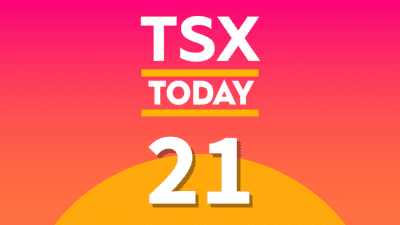Canadians have the luxury of choosing between two registered savings accounts with tax benefits.
The Tax-Free Savings Account (TFSA) allows post-taxed income to be invested and grow completely tax-free. Withdrawals can also be done at any time, without paying any tax at all. The catch is that there’s a yearly contribution limit. In 2021, that limit is $6,000.
The Registered Retirement Savings Plan (RRSP) has its own tax benefits, but they differ slightly from a TFSA. The RRSP allows pre-taxed income to be invested, but Canadians must pay income tax when the funds are withdrawn.
The RRSP also has a yearly contribution limit, but it’s much higher than that of the TFSA. In 2020, Canadians are eligible to contribute up to $27,230 or 18% of their earned income that was reported on the previous year’s tax return, whichever is less.
The RRSP contribution deadline is nearing
TFSAs don’t have a specific contribution deadline during the year. Canadians have the full year in 2021 to contribute up to $6,000. RRSPs work slightly differently.
In 2020, the RRSP contribution deadline is March 1. Any contribution made before that deadline is eligible to be reported on a Canadian’s tax return from 2020. Any contribution made after March 1 will need to be reported on next year’s tax return.
Understanding the tax benefits of an RRSP is just half the battle. The other half — where the fun is — comes from deciding what type of investments you’ll be purchasing.
The RRSP account is typically used for retirement savings, which is a long-term goal. As a result, you’ll want the investments in this account to have a certain level of growth. That growth will allow you to capitalize on tax-free compounded interest that will grow over the long term.
What type of funds should you own in your RRSP?
It’s possible that you still have many years, or even decades, before needing to withdraw funds from your RRSP. If that’s the case, owning a portfolio predominantly invested in equity would be a wise idea.
If you’re new to investing, or not willing to spend the time to research individual companies, an exchange-traded-fund (ETF) is a perfect place to begin.
There’s much to like about the different ETFs that Canadians have access to. Typically, the fees are substantially lower than what investors would pay to own a mutual fund. There’s also the flexibility that ETFs can provide. There’s a long list of funds to choose from based on your investment objectives.
Canadian investors can choose to have a broad diversification and invest in a total stock market index fund, such as Vanguard FTSE Canada All-Cap ETF. Or, if you’re looking for exposure to a specific geographic region, such as the U.S., Vanguard S&P 500 Index ETF is a solid choice.
Investing in individual stocks
For Canadians seeking to take a more hands-on approach to their investment portfolio, investing in individual stocks could potentially lead to a higher average annual growth rate. Which, compound over many years, could lead to a significant amount of retirement savings.
When deciding on which stocks that I’ll be holding for the long-term in my RRSP, I’m looking for quality market-leading companies with a sizeable competitive advantage. That definitely narrows down the list of available TSX stocks, so you’ll eventually want to include some higher-risk companies with a less-proven track record in your RRSP once you’re satisfied with the cornerstone stocks of your portfolio.
Foolish takeaway
Canadians now have less than two months to contribute to their RRSP if they’re looking to claim that on their 2020 tax returns. Whether you’re a seasoned investor looking for the next hottest growth stock or are completely new to the investing world and looking to start simple, you can stand to benefit come tax season time by contributing to your RRSP.








